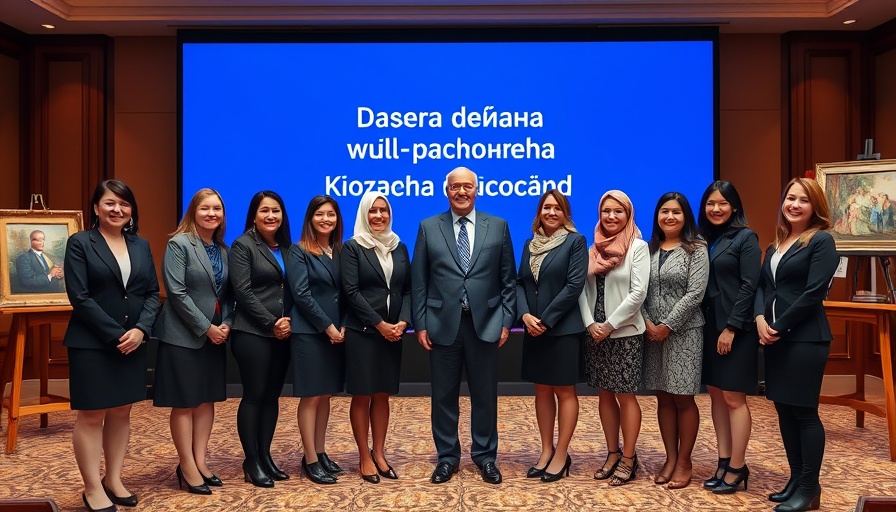
Pioneering Dialogue: Women's Leadership in Russia
In a historic move, female leaders from various faiths in Russia have convened for the first-ever Interfaith Women's Round Table. This gathering, spearheaded by influential pastor's wives and other key figures, aims to promote mutual understanding and collaboration among diverse religious communities. This initiative not only stands as a testament to women's leadership but also emphasizes the vital role women play in fostering dialogue and unity in a country marked by religious diversity.
The Importance of Interfaith Collaboration
The Interfaith Women's Round Table serves as a platform for women to articulate their unique perspectives on faith, family, and community challenges. In a society where women often face obstacles in leadership roles, this round table exemplifies how they can challenge these barriers and emerge as influential voices. The event encourages attendees to share their experiences, cultivate empathy, and build networks that can tackle pressing social issues together, from healthcare to family welfare.
Impact on the Adventist Community
This gathering carries significant weight for the Seventh-day Adventist (SDA) community and its mission of outreach and service. Female leaders within the SDA church have traditionally been at the forefront of community engagement, exemplifying values such as compassion, service, and advocacy for health. By organizing this round table, they highlight their dedication to interfaith dialogue and teamwork, reinforcing the role of women in advancing church initiatives. Attending this event could lead to partnerships that extend the church's outreach efforts beyond conventional boundaries.
Counterarguments: Challenges in Interfaith Initiatives
While the Interfaith Women's Round Table is a positive step toward unity and understanding, it is not without its challenges. Some skeptics argue that interfaith dialogue may dilute distinct beliefs and practices, leading to misunderstandings rather than cooperation. Others raise concerns about inclusivity, questioning whether all faiths feel adequately represented in such discussions. Addressing these counterarguments is essential to ensure that the round table remains a constructive and respected forum for all involved.
Future Directions and Opportunities
As this initiative unfolds, the potential for growth is immense. The round table can serve as a model for similar events in other regions, inviting women from various faiths and backgrounds to engage in dialogue. By showcasing their stories and experiences, these women can inspire further initiatives that break down barriers and foster greater understanding among communities, setting a precedent for future interfaith collaborations.
Empowering Women Through Community Leadership
One of the overarching goals of the Interfaith Women's Round Table is to empower women leaders within their respective communities. By providing a safe space for discussion and collaboration, women can gain confidence, hone their leadership skills, and learn from one another. The round table emphasizes the importance of personal experiences and shared narratives in building a strong, united front against the challenges they face in society.
Conclusion: Taking Action for Change
As members of the SDA faith community reflect on the significance of the Interfaith Women's Round Table, it becomes clear that fostering dialogue and cooperation among different faiths has the potential to create profound change. It is essential for church members to engage in such initiatives actively, helping to bridge gaps between communities and enhance the church's involvement in the wider social landscape. Join the movement and be a part of creating lasting change through interfaith understanding.
 Add Row
Add Row  Add
Add 




Write A Comment